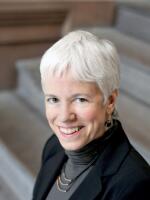A coalition of unions and government reform groups are calling for a ban on standardized testing for New York’s school children in second grade and younger.
A coalition of unions and government reform groups are calling for a ban on standardized testing for New York’s school children in second grade and younger.
In a teleconference, United Federation of Teachers President Michael Mulgrew said it’s “absurd” that the groups are even in the position of calling for a ban on standardized testing for children in pre kindergarten through the second grade. Mulgrew and others say that the tests are inappropriate for four to seven year olds, and should never have been implemented in the first place.
“We did not think anyone would ever think it would be appropriate to standardize test children, many of whom can’t even hold a pencil,” Mulgrew said.
Jeanine Smith, who teachers first grade on Long Island, says many of her students can’t even color within the lines, let alone filling in test answer bubbles. She says her students were required to take the standardized tests for several days during the first weeks of the school year.
“The time that we spent on the standardized testing is just ludicrous,” Smith said. “It sometimes can take a half a day to get through one test.”
She says her students don’t fill out the tests by hand, they take the exams on computers. But she says that format also has problems. She says the test programs sometimes crashed in the middle of the exams, and students had to wait while they system was rebooted.
The tests are not used to evaluate the students. Those tests don’t begin until the third grade. They are instead used to measure the teacher’s performance. Under a new state law, all teachers in the state must undergo evaluations to comply with the new Common Core standards and to qualify for federal grant monies that have already been received.
School districts were not required to administer standardized tests, but they are required to conduct an assessment of students’ knowledge at the beginning and end of the school year, in order to measure how much they learned from their teacher during the school year. Many schools chose the tests as an inexpensive means of complying with the new state law under a short deadline, but have lived to regret the choice.
Peter DeWitt, principal of the Poestenkill Elementary School near Albany, says he finds it troubling that , even though the tests are not supposed to be used to rank the kindergarten, first and second graders, the students never the less receive a mark of either one, two, three or four. Three and four means the student passed, a grade of one or two mean the child is performing below the standard.
“They’re being labeled, “ DeWitt said.
The groups say a portfolio style of assessment would be preferable, where students demonstrate to the teacher whether they have a grasp on shapes, or colors, or know how to count.
The groups have begun a petition calling for a ban on the standardized tests for pre-kindergarten through second graders. They are asking the legislature and the State Education Department for help. Senate Education Chair John Flanagan has been conducting hearings and is expected to recommend some changes to how schools are adopting the new Common Core standards.
State Education Commissioner John King, in a written response, put the responsibility back on the individual school districts. King says the state has never required the testing of young children, and that teachers unions and school administrators should get together and come up with a better way to evaluate teachers in the early grades that does not involve standardized tests.






